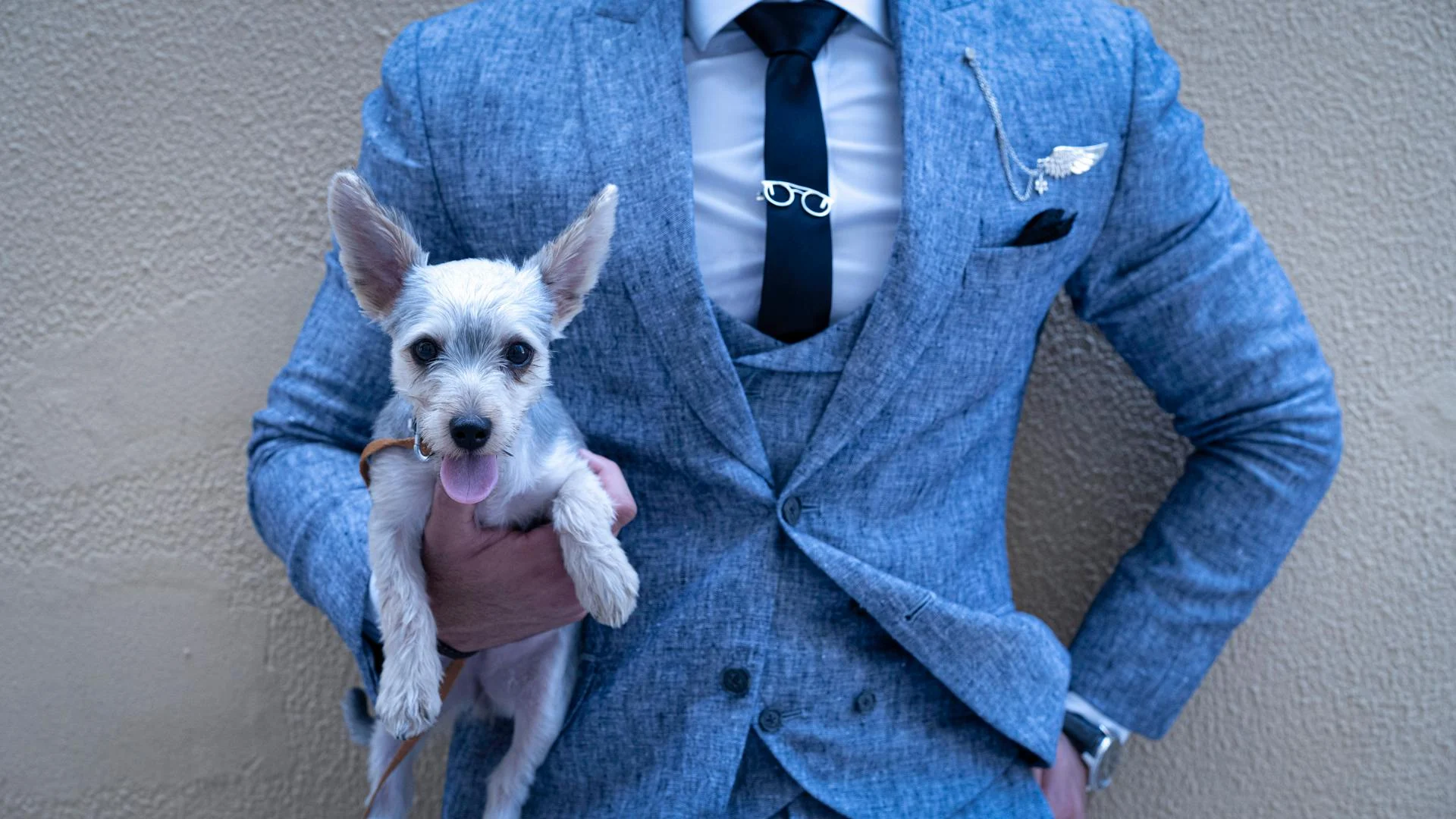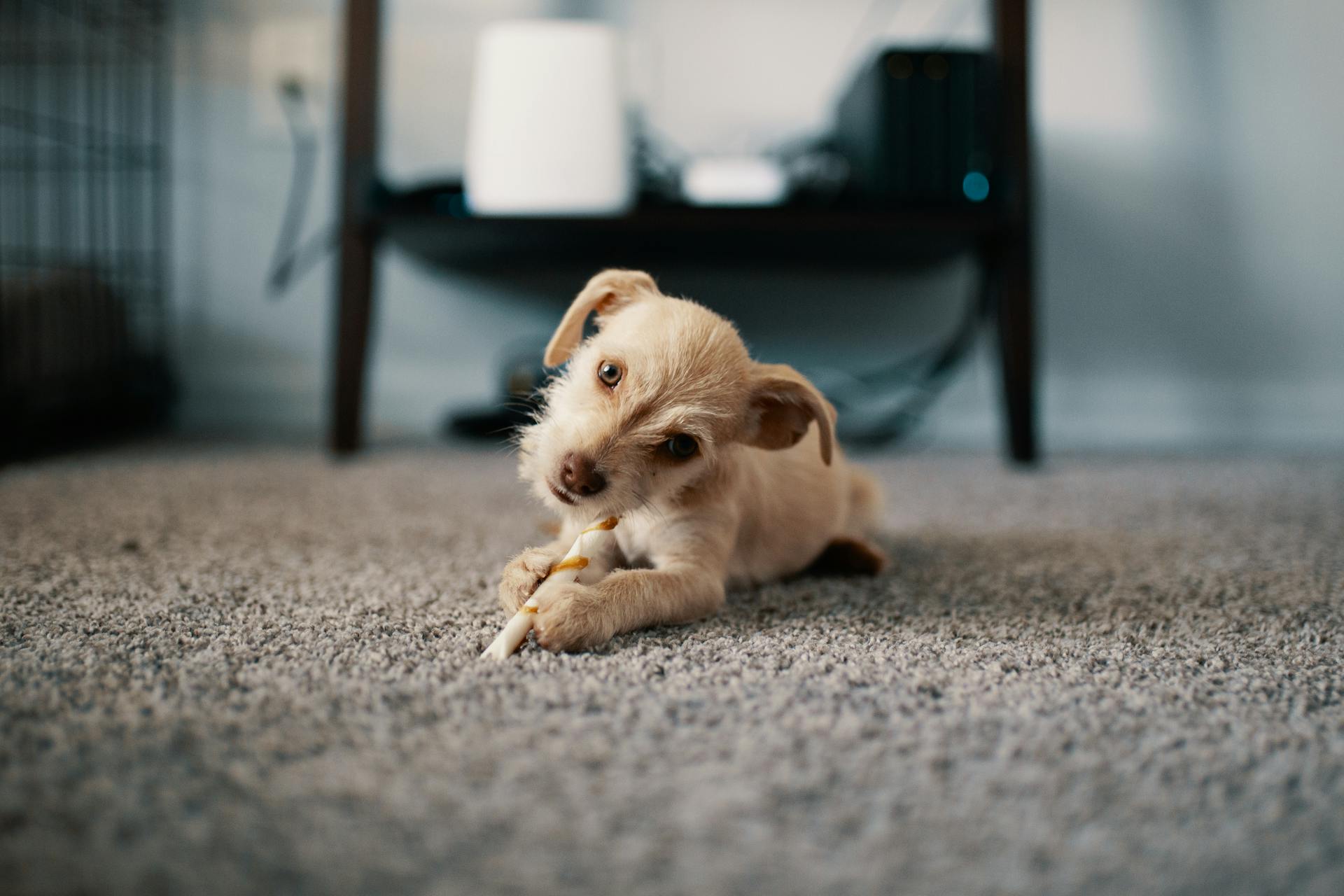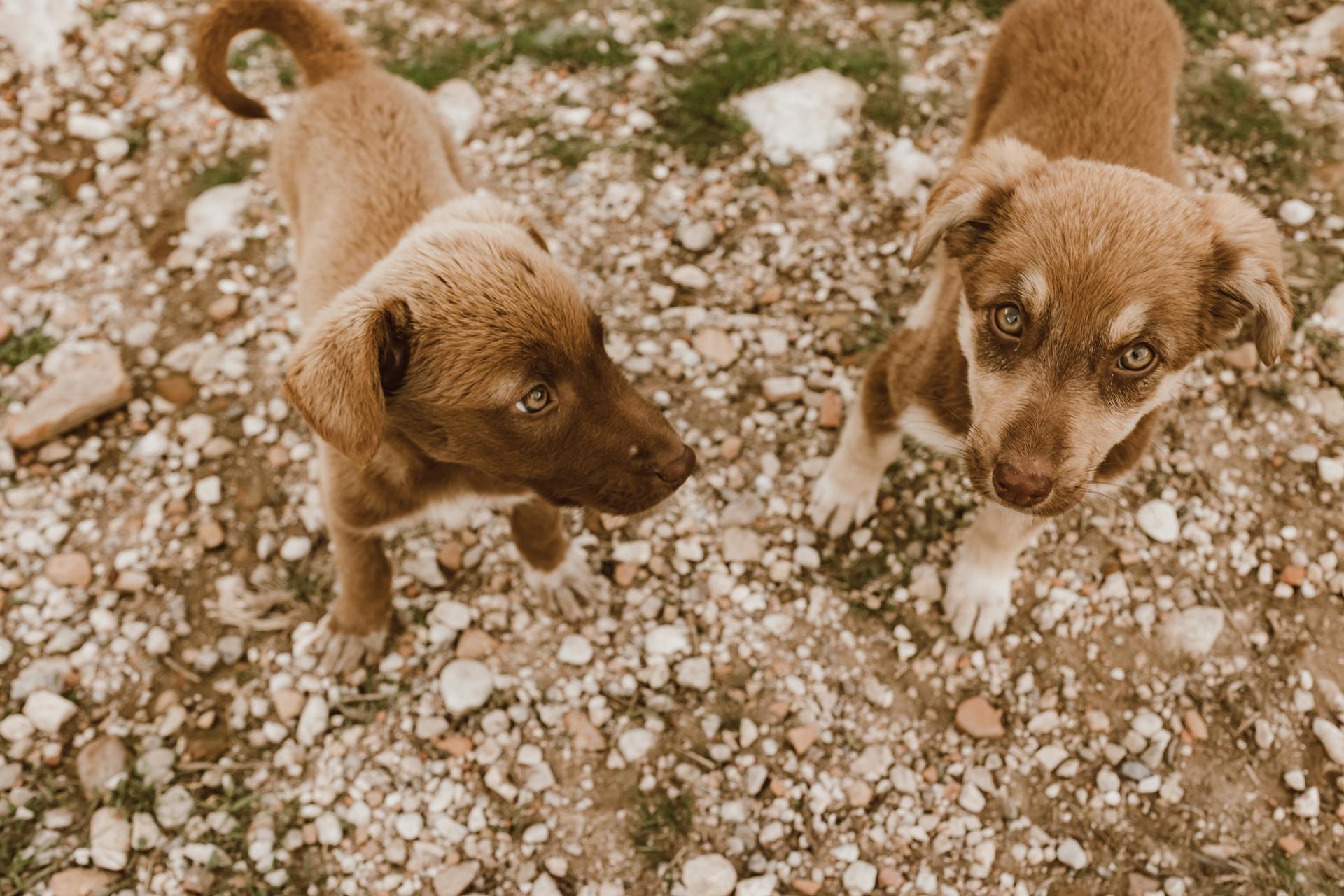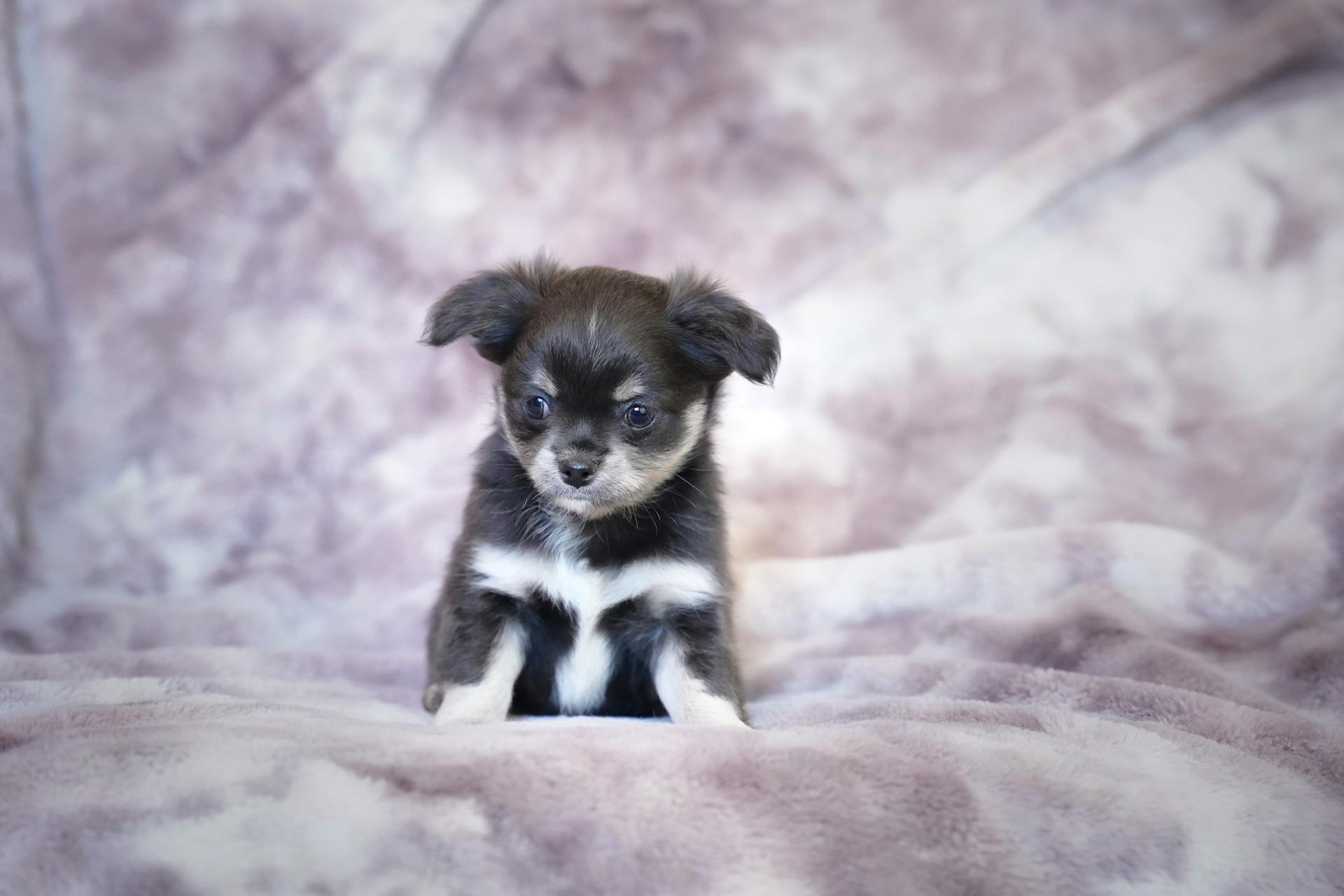
Rottador puppies are intelligent and loyal companions for life. They are a cross between a Rottweiler and a Labrador Retriever, making them a unique and loving breed.
Their intelligence is one of their most notable traits, with a high trainability score that makes them excel in obedience training. With consistent training and positive reinforcement, Rottador puppies can learn a wide range of commands and behaviors.
Rottador puppies are also known for their loyalty and affection towards their families. They are natural protectors and will often form strong bonds with their owners, making them a great addition to families with children.
You might like: Leash Training Puppies
Choosing a Rottador Puppy
Take your time choosing a Rottador puppy, as socialization and positive reinforcement training should start right away in puppyhood.
A responsible breeding program is implemented over many years, not after one breeding. This means a good breeder will have a well-established program in place.
Asking about the scope of their program can give you an idea of their experience and commitment to breeding healthy, well-socialized puppies.
A responsible breeder should provide detailed health and behavior aspects about both parent breeds, including testing for certain health markers.
You should also compare costs with other experienced Rottweiler breeders, as there are three types – American, German, and Roman – with varying characteristics.
If a breeder isn't willing to show you their home or facility, it may be a sign of a puppy mill.
Be prepared to answer any questions a breeder asks of you as a potential pet parent, and welcome their enthusiasm for finding the right homes for their beloved puppies.
Breed Overview
The Rottador is a crossbreed that's a mix of two popular purebred dogs, and while it may not have a long history, it's definitely a breed worth considering.
The average height of a Rottador is between 24 and 27 inches.
Rottadors have a smooth, short, double-coated coat that sheds, and they come in a variety of colors including black, brown, and grey, and sometimes a combination of two or three colors.
Their lifespan is relatively long, ranging from 9 to 12 years.
Rotterman (Doberman)
The Rotterman, a mix of Doberman Pinscher and Rottweiler, is a loyal breed that thrives on attention from their family. They were bred to watch over their families, making them natural guardians.
Rottermans are natural followers, often sticking close by their owner's side. They need dedicated time for training and socialization to help them accept other pets in the house.
A brisk run together each day is a great way to spend quality time with your Rotterman. This helps strengthen your bond and keeps them happy and healthy.
New Crossbreed Still Building Origin
The Rottador is a relatively new crossbreed, and as such, it's still building its origin story. The Rottador's parents are two of America's favorite purebred dogs, the Rottweiler and the Labrador Retriever.
Rottweilers have had a bit of a bad reputation over the years, but they're actually incredibly loyal, loving, and intelligent. With proper training and socialization, they can get along well with most anyone.
These dogs have a rich history, having been bred as ancient warriors in the Roman Empire. Today, they're one of the world's most sought-after service breeds, ranking number 8 out of 197 on the American Kennel Club's list of America's Most Favorite Breeds.
The Rottador inherits its loving temperament from its Rottweiler parent, making it a great family dog. This is one reason why the Rottador is a popular choice for families.
On average, a Rottador puppy from a reputable breeder will cost between $300 to $600, which is relatively affordable compared to other crossbreeds.
Physical Characteristics
Rottador puppies can grow up to 27 inches at the shoulder, but they're often seen at 25 inches. Their adult weight can reach up to 115 lbs, which is a significant size.
Their coat is a short, double-coated one, which means they don't require a lot of grooming, but they do shed a lot. You can expect a lot of shedding from your Rottador, so be prepared for that.
Labradors come in three colours: Yellow, Black, and Chocolate, while Rottweilers come only in Black and Tan. A mix between a Rottweiler and a Black Lab will almost certainly result in a black puppy.
For your interest: Black Chiweenie Puppies
Temperament and Training
Rottador puppies are known for their calm demeanor inside the house, but they can be difficult to handle if not properly trained or socialized.
They are intelligent and confident, making them relatively easy to train with positive reinforcement techniques like treats and praise.
Rottadors love their people and will want to do anything to please them, but punishment during training can impede their learning process and make training less effective.
They enjoy a lot of family time and will feel aggrieved if left out of social functions, so regular interaction and consistent training are crucial.
To avoid problems like impatience, jealousy, or separation anxiety, take your pup's training seriously from an early age.
Rottador dogs can be prone to aggressive behaviors, especially if not properly raised, so it's essential to monitor their behavior and socialization.
Socialization is key, and exposing your Rottador to new experiences, people, and places at an early age can help reduce potential fear and anxiety.
Are Good?
The Labrottie is a dog that requires a lot of training and discipline.
They may not be suitable for a family that has never owned a dog.
You should do extensive research about the parent breeds before taking in a Rottador.
Labrador - Rottweiler mix puppies are often bred by unscrupulous breeders who care not a bit for the dog’s health.
Their lack of care of the puppies will lead the adult dog to poor health, which will incur great expense.
Make sure you do a background check on your "breeder" if you're getting your puppy from there.
You can get mix breeds from shelters too.
Curious to learn more? Check out: Brittany Spaniel Pups
Temperament
The temperament of a Rottador is a crucial aspect to consider when deciding to bring one home. They are known for their calm demeanor inside the house, especially when sufficiently exercised.
Rottadors are excellent with all members of the family, but they can be difficult to handle if they're not properly trained or socialized. Impatience, jealousy, or separation anxiety can be problems if training is neglected.
Take a look at this: When Do Puppys Stop Growing
Labrotties' protective instincts are not as strong as their Rottweiler parent's, making them a better choice for people without experience with guarding breeds. However, they might still be wary of new people and animals.
Rottadors are devoted and intelligent dogs, making them a joy to train. They love their people and will do anything to please them, as long as training is done properly.
Proper training involves using positive reinforcement techniques like treats and praise, and steering clear of scolding or punishing your Rottador if they make a mistake. Punishment can impede their learning process and make training less effective.
Rottador dogs are very smart and will enjoy a challenge, so keep training sessions short and game-like to hold their interest. They'll also appreciate having a job to do, like bringing in groceries or sorting laundry.
Despite their friendly nature, Rottadors can be prone to aggressive behaviors if they're not properly raised. This is especially true if they're not socialized at an early age or if they're left unneutered.
Socialization is key to reducing potential fear and anxiety in Rottador dogs. Expose them to new experiences, people, places, and things, and make sure these experiences are positive. Obedience school and training classes can also help increase their chances of being happy and healthy.
The Rottador's temperament is not just about their behavior, but also about their needs. They require regular exercise, family interaction, and consistent training to thrive. If these needs are met, they'll be a loving and loyal companion.
For another approach, see: Puppy Barking at Other Dogs
Specific Diet for Thriving
When considering the specific diet for your Rottador puppy, it's essential to provide high-quality dog food that meets their nutritional needs.
A good diet for Rottador puppies should include dog food high in real animal protein, such as chicken, turkey, or beef, making up at least 30% of the food.
This can help protect your puppy from developing future health issues like Bloat or bone and joint problems, and also aid in skin and coat health.
Rottador puppies need quality sources of carbs, fatty acids, vitamins, and minerals, as well as a good source of water.
A diet that includes animal byproducts, additives, fillers, corn, soy, or wheat should be avoided, as they can cause more harm than good.
Raw dog food, wet dog food, dry dog food, or homemade dog food can all be suitable options for Rottador puppies, as long as all their nutritional needs are being met.
For your interest: Puppys Food
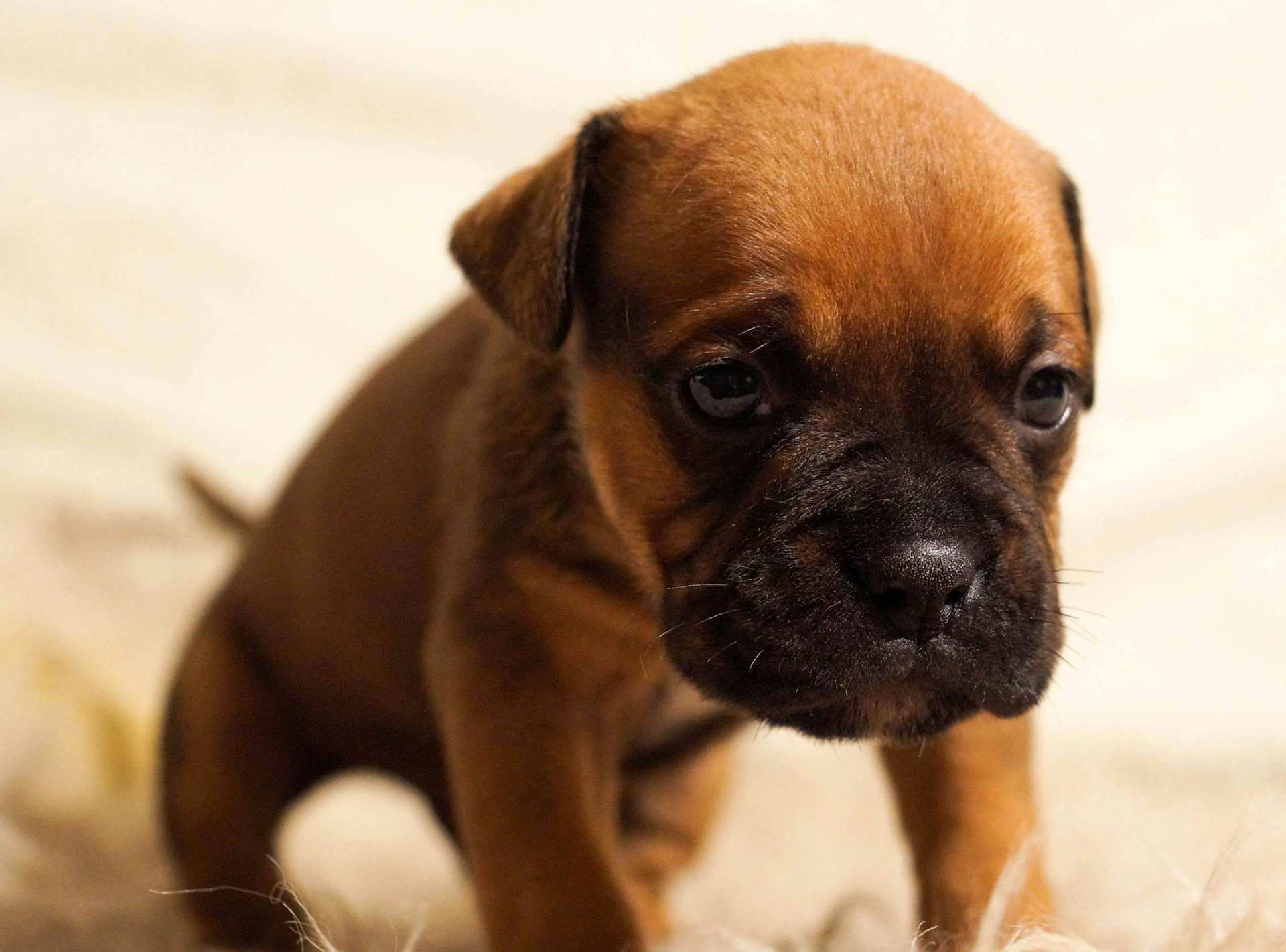
To ensure you're providing the best diet for your puppy, consult with your veterinarian to determine the most suitable food for their age, weight, and activity level.
Here are some key dietary requirements for Rottador puppies:
By following these dietary guidelines and consulting with your veterinarian, you can help ensure your Rottador puppy grows into a happy, healthy, and thriving adult dog.
Featured Images: pexels.com
